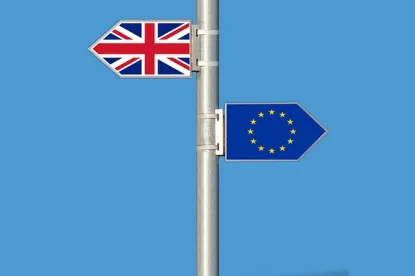On March 29, the United Kingdom submitted its “Article 50 Notice” to begin its departure from the European Union in the form of a letter (Notice) from Prime Minister Theresa May to EU Council President Donald Tusk. The Notice marks the formal start of a two-year process of negotiations to exit the European Union. If negotiations are not completed within that timeframe, it can only be extended by unanimous consent of all remaining member states.
The negotiations themselves will be affected by several future events. On April 29, the remaining member states will adopt negotiation guidelines published by Donald Tusk. Later in 2017, both France and Germany will have elections, with the inherent potential for incumbent leadership to be replaced by different political parties with differing views on the deal to be struck between the European Union and the United Kingdom.
Subsequent to delivery of the Notice, on March 30, the UK government published the white paper (White Paper) for the Great Repeal Bill (Bill). The Bill will repeal the European Communities Act 1972 (the act that empowers EU law domestically) on the day the United Kingdom leaves the European Union. Furthermore, the Bill proposes to convert the ‘acquis’—the body of European legislation—into UK law, with the aim that the same laws and rules will apply both immediately before and after the departure process is completed. Lastly, the Bill will put in place powers to create secondary legislation, so that corrections can be made to laws that no longer operate appropriately after the United Kingdom has left the European Union.






 />i
/>i

